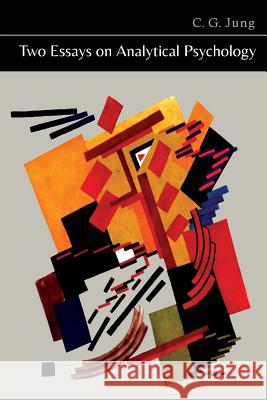Two Essays on Analytical Psychology » książka
Two Essays on Analytical Psychology
ISBN-13: 9781614277170 / Angielski / Miękka / 2014 / 300 str.
2014 Reprint of 1928 Edition. Full facsimile of the original edition. Not reproduced with Optical Recognition Software. This volume has become known as perhaps the best introduction to Jung's work. In these two famous essays: "The Relations between the Ego and the Unconscious" and "On the Psychology of the Unconscious," he presented the essential core of his system. Historically, they mark the end of Jung's intimate association with Freud and sum up his attempt to integrate the psychological schools of Freud and Adler into a comprehensive framework. Review: "This book must be considered a fundamental work among Jung's writings and deserves to be read by Jungians and non-Jungians alike."-"American Journal of Psychotherapy" " This work] is important as evidence of the evolution of Jung's thought (the book contains the original essays which were written in 1912 and 1916 as well as their most recent revisions) and is valuable as an introduction to the 'analytical' or 'complex' psychology of the Jungian school. . . ."--Thomas J. J. Altizer, "The Journal of Religion"
2014 Reprint of 1928 Edition. Full facsimile of the original edition. Not reproduced with Optical Recognition Software. This volume has become known as perhaps the best introduction to Jungs work. In these two famous essays: "The Relations between the Ego and the Unconscious" and "On the Psychology of the Unconscious," he presented the essential core of his system. Historically, they mark the end of Jungs intimate association with Freud and sum up his attempt to integrate the psychological schools of Freud and Adler into a comprehensive framework. Review:"This book must be considered a fundamental work among Jungs writings and deserves to be read by Jungians and non-Jungians alike."-"American Journal of Psychotherapy""[This work] is important as evidence of the evolution of Jungs thought (the book contains the original essays which were written in 1912 and 1916 as well as their most recent revisions) and is valuable as an introduction to the analytical or complex psychology of the Jungian school. . . ."--Thomas J. J. Altizer, "The Journal of Religion"











